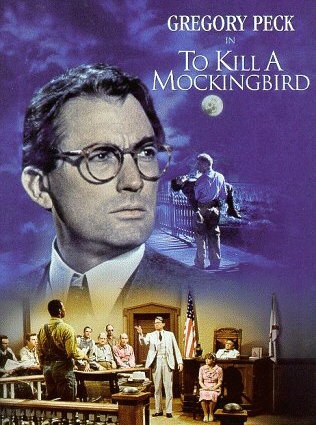I've read Cold Mountain already, but I may be rereading it soon.
Monday, December 31, 2012
What's On My To-Read Shelf: 1
These are books that I may or may not read in the near future; they're kind of just piled up randomly in a corner of my bookshelf, waiting to maybe be read. These aren't ones that I have any urgency to get to, books that I have to read. They're just there.
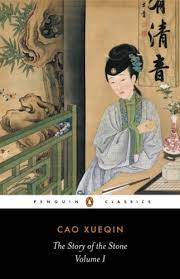
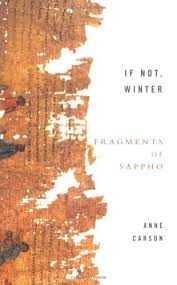
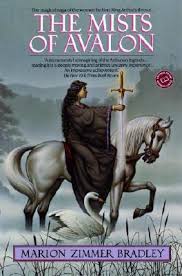
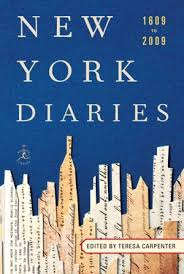


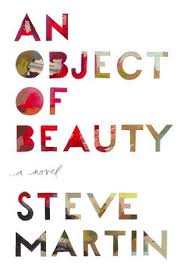
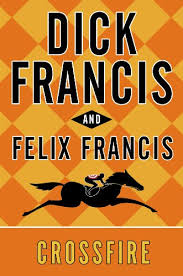

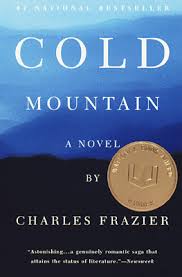
I've read Cold Mountain already, but I may be rereading it soon.
I've read Cold Mountain already, but I may be rereading it soon.
Sunday, December 30, 2012
The Adventures of Huckleberry Finn, Mark Twain
Believe it or not, I had actually never read The Adventures of Huckleberry Finn before. I'd obviously read The Adventures of Tom Sawyer, but not this sequel, narrated from Huck's point of view. Much of the book deals with a trip that Huck and Jim take down the Mississippi River. It's interesting, because they're bound for the North, but they end up going into the Deep South, the heart of slave country. Along the way, they meet with all sorts of people and encounter all sorts of mishaps.
Huck narrates in his own voice, so it's very ungrammatical. But he's surprisingly smart; he learns how to read at the beginning of the book, and he has a lot more sense than Jim does in certain areas. And even though he is pretty uneducated, he's street smart (or shall we say river smart?) It's kind of funny, because a lot of times Huck misunderstands things. Like, at one point he says "I had learned all of my times tables to six times seven is thirty-five". Another time, he thinks the dauphin is the "dolphin", and that valet is "valley".
At first, the life the two of them lead seems idyllic: floating down the river in a raft, doing whatever they want, frying fish for dinner. But it's not really. They encounter all sorts of strange things.
I liked the section where they meet up with two con men, who claim to be an exiled duke and the exiled dauphin of France. They pull off all sorts of cons, and make a whole bunch of money. It was amusing, though obviously the men are criminals, and do a lot of shady things, and are eventually revealed to be pretty nasty people.
The Adventures of Huckleberry Finn has a lot of humor in it and a great narrative voice. It is an interesting classic, though not one of my favorites, and (at least for me), not quite as good as The Adventures of Tom Sawyer.
Read The Adventures of Huckleberry Finn:
- if you like Mark Twain
- if you like books set on the (Mississippi) River
- if you like books about journeys
 | ||||
| Very Good! I would recommend this book! |
Saturday, December 29, 2012
Kidnapped, Robert Louis Stevenson
I read Treasure Island a while ago (perhaps I'll reread it again soon), and have been wanting to read Kidnapped for a long time. It's also an adventure story; David Balfour, an orphan, is cheated out of his inheritance by his uncle, who schemes to have him kidnapped and sold into slavery. The story is full of adventure, with a shipwreck, a dangerous journey across Scotland, intrigues, escapes, and fighting. Eventually justice triumphs.
I really liked the beginning of the story; then somehow, it got bogged down. A lot of the Scottish lingo was difficult to understand, though the Signet Classics edition I read kindly provided footnotes on the page. But more difficult to understand was the history. I didn't feel like doing research to find out what was happening in Scotland in 1751, but perhaps I should have. There were a lot of references to what was going on (I gather the British were oppressing the Scottish), and some background knowledge would have been very helpful. Also, David was a bit annoying. He's so horrified when he thinks that Alan shot one of the Campbells in cold blood, but he himself had shot some comparatively innocent sailors a week or so before. Talk about senseless morals. And apparently, the Campbells have done a lot of evil things (sorry, Mr. Campbell). Also, it was kind of stupid, because Allan says he hates "the Campbells", as if all men named Campbell are related to this one family. There is a Mr. Campbell in David's life who has helped him a lot, so...Also, the section where Alan and David are fleeing across Scotland is really tedious.
Nevertheless, Kidnapped is full of action, and is a so-so Robert Louis Stevenson novel, the second one I've read. I had some niggling complaints, but if you're looking for an adventure story and a "classic", this is a good book to read. Really, I still understood most of the novel, even if I didn't understand the specifics of what was going on. However, I doubt I'll be adding Kidnapped to my own collection anytime soon. That section was really boring. I would recommend checking this one out of the library first.
Read Kidnapped:
- if you like Robert Louis Stevenson
- if you like adventure
- if you like books set (partly) at sea with pirates
- if you like books set in Scotland
- if you like historical fiction
 | ||||
| Okay book, but it left me wanting more! |
Thursday, December 27, 2012
Looking For Alaska, John Green
Finally, Looking For Alaska showed up at the school library, and was immediately snapped up by me. It's the story of Miles Halter shows up at a boarding school in Alabama to seek what Rabelais called "the Great Perhaps". You see, he's fascinated with last words; he memorizes them. At the Culver Creek, he meets Alaska Young, a crazy and attractive girl, as well as some other very strange people. They do some pretty strange things.
That's John Green for you. I liked this one a bit better than An Abundance of Katherines, but I still think Paper Towns and The Fault in Our Stars were both much better books; more thoughtful, though obviously this one attempts to be. Looking for Alaska is kind of funny, though, and certainly I did want to know what would happen. Also the "x number of days before" was very dramatic. It's a very John Greenish book, if you know what I mean. There's a lot of smoking and drinking.
Alaska is seriously disturbed. All of them are, actually. I really wanted to like this book, but I couldn't get into the first half of the book, "the before" Somehow, it wasn't really engaging or gripping or any of those things that make you love a book. But then the big thing happened. And then the book was amazing. It feels like all of the other stuff is just a build-up to what happens after. It's pretty easy to guess, but without spoiling anything, Miles is kind of grappling with his grief and also his overwhelming feeling of guilt. And there are some really nice thoughts and there is some really great writing here. The first half was a bit boring, but the second made up for it a lot. Stick with this one. And yes, the last three pages are amazing.
Read Looking For Alaska:
- if you like John Green
- if you like realistic (?) fiction
 | ||||
| Very Good! I would recommend this book! |
Wednesday, December 26, 2012
Rereading Throne of Glass by Sarah J. Maas
I didn't manage to go for very long without rereading Throne of Glass. Here's what I said in my original review: "Magic has left the land, and Celaena Sardothien, the kingdom's most feared assassin, is taken out of slavery in the salt mines to compete for being the King's Champion. If she can defeat twenty-three killers, thieves, and warriors, she will eventually win her freedom. Celaena meets the Crown Prince Dorian, and the Captain of the Guard Chaol. So, a love triangle. And Princess Nehemia, from a foreign land, becomes the unexpected: a friend. Then her competitors start being gruesomely murdered, for there is something evil lurking in the castle.
Ah, I really loved this one. It was like Grave Mercy, Graceling, and The Hunger Games in one. I loved the writing and had a very hard time ever putting the book down. It was more girly than I expected, but not overdone. And I enjoyed all the characters and the world that Sarah J. Maas has created. Really, this is the best of the three new YA fantasies I've read so far this fall (Seraphina, Shadow and Bone.) I'm looking forward to the sequel tremendously (I have no idea when it's coming out, but I await its release with expectation."
I don't know why I wrote such a short review. There's so much to praise about this book. I love the snappy exchanges between Celaena and both Dorian and Chaol. Celaena is a great character. She's an assassin, but she's also girly, and likes girly things (clothes for example). She also loves to read, and spends much of her spare time at the castle reading books from the royal library. And on top of all that, she's also a deadly hand with all manner of weapons. And stunningly attractive. But physically and mentally, she's scarred: by her experiences as an assassin and from her brutal year of enslavement in the mines. With an enigmatic past, it's easy to see why so many men fall in love with her.
I definitely like both of the two main male characters in the book too. Both Dorian and Chaol are handsome interesting and really fun to read about. Also, I like Nox, one of Calaena's fellow competitors, too. I wish we could have known a bit more about him, or have his character developed a bit more. He actually reminded me of Po from Graceling just a little bit. But maybe he'll show up again in book 2 (coming out next fall!!!!).
There's also the element of the Wyrdmarks, which are closely connected with the grisly murders that keep occurring. And many other elements of intrigue swirling around the palace of glass in this amazing fantasy novel.
Read Throne of Glass:
- if you like fantasy
- if you like stories with strong female heroines
- if you liked Graceling, Grave Mercy, or The Hunger Games

| Outstanding Book That Will Stay On My Bookshelf For Rereading (jf I own it)! |
Tuesday, December 25, 2012
Rereading The Hero's Guide to Saving Your Kingdom by Christopher Healy
I first read The Hero's Guide to Saving Your Kingdom in the summer (how I remember those days with fondness), and really liked it. Here is what I said in my original review: The New York Times Book Review reviewed this one (you can find it here), and while their review wasn't exactly favorable, I for one thought it sounded interesting enough to merit a try. And I found it quite amusing. "Everyone knows the fairy tale stories of Cinderella, Sleeping Beauty, Snow White, and Rapunzel. But what about Prince Charming? The untold and definitely inaccurate stories of the so-called charming princes is finally about to be revealed - Prince Liam, Prince Frederic, Prince Gustav, and Prince Duncan will get their share of the spotlight. Whether they want it or not."
'I was entertained throughout the whole book. All the quirky characteristics of the various princes (and princesses) were amusing. What I enjoyed also was that the princesses are included too. Cinderella is one of the hero(ines), and Briar Rose, a really horrible spoiled brat, who always gets her own way. If not, she's going to throw a TANTRUM! The Hero's Guide to Saving Your Kingdom is a great book for fans of light fairy tale retellings (or fairy tale after-stories.) Fractured fairy tales, really. And it has good illustrations. On the cover from left to right are Briar Rose, Prince Gustav, Cinderella, and Prince Liam. I liked the cover too. You can see all the characters on the front and back. You can read Melissa's review here. (One critical review and one praising review)."
I think I loved this one even more the second time around. It really is a funny book, reminiscent of Bullwinkle and Rocky's fractured fairy tales. Yes, it can be a bit cheesy, but for the most part it's an entertaining and enjoyable read. The characters of the four princes are really funny. The illustrations are amazing, and the plot is light and funny.
Read The Hero's Guide to Saving Your Kingdom:
- if you like light fantasy
- if you like fractured fairy tales

| Outstanding Book That Will Stay On My Bookshelf For Rereading (jf I own it)! |
Sunday, December 23, 2012
The Autobiography of an Ex-Colored Man, James Weldon Johnson
The Autobiography of an Ex-Colored Man is an interesting portrayal of what it's like to be black in the early 1900s. Purportedly an "autobiography", it is the story of an intelligent young man who "ignores the best in himself." He gets his money stolen and doesn't go to college, though he's extremely talented musically. The book tells of his life, from the craps tables of New York, to high society in Europe with his "millionaire" friend. I picked this one up on a whim, and really liked it.
Though extremely short, the edition I read had small font, and it is a bit difficult to get through. However, it offers some interesting insights. I particularly liked the earlier sections of the book. The narrator (who, as far as I could tell, is unnamed) is really the only main character. The other people in the story come and go; no one sticks around for very long. The narrator describes things with intelligent language and acute perception. The writing style is dense, yes, but also rewarding. The "race question" is discussed a lot; I particularly liked the scene on the train where the Texan and the Yankee soldier are debating. I can really see both sides of the argument (even the Texan's, a little bit).
When I say it's set in the 1900s, I think it is, because the book itself makes no mention of the time period specifically, except that it's after the Civil War. The book, however, was published in 1912.
There are some interesting character studies in this book too. The millionaire friend, the porter, his mother, "Red", "Shiny", etc, are all well drawn and developed.
I'd never heard of this book before, and I'm glad that I read it. I might try reading more of James Weldon Johnson's work in the future.
154 pages.
 | ||||
| Very Good! I would recommend this book! |
Saturday, December 22, 2012
Fahrenheit 451, Ray Bradbury
I can understand the fascination with burning, but why books? I read Fahrenheit 451 for class, and I enjoyed it, though it's somewhat disturbing. In a futuristic world, firemen don't put out fires, the set fires, and burn books. Guy Montag is a fireman, who has always been satisfied with his job, until he meets Clarisse, a seventeen year old who changes how he thinks about everything...
Ray Bradbury has a very distinctive writing style, which I noticed in Dandelion Wine, which I read a while ago. I would say Fahrenheit 451 is a much better book; the writing is better and the subject matter more interesting. The society depicted in the book is really scary. Mildred, Montag's wife, is always watching her three-wall television (she wants a four wall). It's interactive too, so she can take part in the shows. She's almost always watching it or listening to her Seashell (earphones).
Clarisse and Faber are both really interesting characters. I think I would probably get along with Clarisse. Now, books being really important to me, I found this book super disturbing, and not altogether unrealistic. Though written in the 50's, it bears a certain resemblance to the increasing consumerism of today. Bradbury builds suspense and dread with his foreshadowing (for example, the Hound not liking Montag).
I've been planning to read The Martian Chronicles for a while now, and Fahrenheit 451 motivated me to do so. I would highly recommend this excellent Ray Bradbury novel. Update: Not going to read The Martian Chronicles. I don't like scary science fiction. That scene where the Martians pretend to be the astronauts' relatives and kill them is really creepy.
Read Fahrenheit 451:
- if you like science fiction
- if you like Ray Bradbury
 | ||||
| Very Good! I would recommend this book! |
Friday, December 21, 2012
Watching Casablanca
Casablanca can be a bit sappy sometimes, but it is certainly a classic film, and very good overall. All of the characters are well portrayed, and it is an entertaining movie. My favorite scene may just be when the Germans start singing their anthem, but La Marsielles drowns it out. Casablanca is full of great acting.
4 stars.
Thursday, December 20, 2012
The Flight of Gemma Hardy, Margot Livesey
The Flight of Gemma Hardy is set in 1950's and 60's Scotland, and is a retelling of Charlotte Bronte's Jane Eyre, a book which I really love. Gemma Hardy was orphaned and sent to live with her kind uncle. But when he died, she was left under the rule of her tyrannical aunt. She thinks going to Claypoole, a boarding school, will save her, but arrives there and finds herself treated as a menial servant. The school eventually goes out of business, and Gemma takes a job as an au pair on the remote Orkney Islands, where she meets Mr. Sinclair of Blackbird Hall. His eight year old niece is Gemma's charge. Gemma finds herself fascinated by the comparatively rich Mr. Sinclair. Her biggest trial is about to begin.
I really loved this one just as much as the original novel, if not a teensy bit more. The writing is certainly much more modern than Bronte's, but it bears a certain resemblance to that of Jane Eyre. The novel sticks very closely to the original storyline for the first half, but in the second half, there's a lot added in and a lot taken out. Even though I knew the story, I still really wanted to find out what was going to happen next as I was reading, and there were plenty of surprises. Gemma is an interesting character on her own, and The Flight of Gemma Hardy is an amazing book on its own too. Who knows whether it will be remembered as Jane Eyre is now, but I certainly loved it.
I also loved the design of the hardcover edition that I checked out of the library. The cover is very nice, but what I really liked was the spine, flaps, and the back cover. So elegant.
The Flight of Gemma Hardy is a much better classic retelling than For Darkness Shows the Stars. It sticks closer to Jane Eyre, but also explores more too. Also, though it's set in the 20th century, you don't really notice it that often, expect when it occasionally mentions cars. I still felt that somehow it was set in the 19th century (or at the very least, early, early 20th century). And I liked that.
The Flight of Gemma Hardy is an excellent novel, both on its own and compared to the original.
Read The Flight of Gemma Hardy:
- if you like Jane Eyre
- if you like classic retellings
- if you like historical fiction
- if you like books set in Scotland

| Outstanding Book That Will Stay On My Bookshelf For Rereading (jf I own it)! |
Wednesday, December 19, 2012
Winter Break
Winter break has begun, so I will be taking off for San Diego, and then driving via Death Valley to Las Vegas, where we'll fly back. I have no idea whether I'll have Internet for the next two weeks: maybe, maybe not. So I might not be posting. Happy holidays everyone, and enjoy your winter break!
In a Glass Grimmly, Adam Gidwitz
In a Glass Grimmly is the companion to A Tale Dark and Grimm. It just came out this fall, and I loved it just as much. It follows Jack and Jill, two royal cousins, along with a talking three-legged frog, as they travel and experience (you guessed it) ever more bloody things. Adam Gidwitz's sharp humor is again apparent in this second book. The funny thing is, though in both books, he's always warning you about the bloody parts, they're not actually that bloody or disgusting. I'm sure in real life, they would be, but in the novel (at least for me), you just don't feel that disgusted.
In a Glass Grimmly was slightly better, I think, than A Tale Dark and Grimm. There are less witty asides from the narrator of the book, which are perhaps the funniest things to read. There are still plenty of them, though, and the book is structured much the same way, with each new chapter beginning, "once upon a time", but the story itself is better.
My favorite part of the book may just have been when Jill outwits the giants by having an eating contest and pouring the porridge into a blanket. The ruse is discovered, but she has more tricks up her sleeve. I won't give it ac\way, but it was pretty funny. But then Jack gets mad that she saved them from the mess he got them into and falls down and breaks his head. Oops. I probably shouldn't have told you that. But don't worry. He recovers. Overall, this book is less bloody and has more "life lessons", like telling you to love yourself, just the way you are. Whenever they get in trouble, either Jack saves them, or Jill, or the frog, or they all work together to save each other.
In a Glass Grimmly is written in the same vein as A Tale Dark and Grimm, and I would highly recommend it.
Read In a Glass Grimmly:
- if you like dark fairy tales or dark fiction in general
- if you like retellings of fairy tales
- if you like fantasy
- if you liked A Tale Dark and Grimm

| Outstanding Book That Will Stay On My Bookshelf For Rereading (jf I own it)! |
Tuesday, December 18, 2012
Tell the Wolves I'm Home, Carol Rifka Brunt
Tell the Wolves I'm Home is about losing love and finding love, I guess. In 1987, June Elbus's uncle and godfather, the painter Finn Weiss, dies. He's the only person who's ever really understood her, and now he's gone. Her older sister Greta has grown apart from her, and her parents are rarely around in the winter. But at Finn's funeral, she notices a stranger outside. Then she receives a package in the mail, with a beautiful teapot that Finn wanted her to have. She meets the stranger, whose name is Toby. He was Finn's partner, and the rest of her family thinks that he gave Finn AIDS on purpose. She meets with him many times, and gradually begins to trust him.
This was a very interesting book, and I really liked how the relationship between Finn and June was described. He's her uncle, but she also kind of feels disturbingly attracted to him. At the same time, they just really enjoy one another's company, and share the same tastes. June is fascinated in the medieval era, and he often took her to the Cloisters. They also loved Mozart's Requiem. It was really sweet to read. June feels somewhat betrayed when she learns that Toby knows all about her, and she knows nothing about Toby, which was entirely natural. She eventually learns to like Toby too though.
One thing that made me uneasy was that she just decided to go meet Toby, alone, with no one who knew where she was. Obviously, June has plenty of reservations about going, but she did it anyway, kind of spontaneously. In real life, I don't think that's a very good thing to do.
Being set in 1987, AIDS is kind of a new disease that no one knows much about. For example, June thinks that you could get it if someone kissed you on the head. The 1980's were definitely a good setting for this sad but sweet novel.
Read Tell the Wolves I'm Home:
- if you like historical/realistic fiction
- if you like books set in New York City
- if you like books that deal with grief/love
 | ||||
| Very Good! I would recommend this book! |
Monday, December 17, 2012
The Life of Objects, Susanna Moore
The Life of Objects is the story of (you guessed it) Beatrice Adelaide Palmer. She is an Irish lace-maker, and is whisked away in what seems a fairy tale to live with Felix and Dorothea Metzenburg. She is introduced to artists, aristocracy, and actors. But World War II is looming, and the conflict arrives at the Metzenburg's. The family and its servants go to their country estate, and try to preserve the old world. But Nazi terror just keeps advancing. Eventually, the Metzenburgs, who Beatrice (or Maeve) has become attached to, are forced to go into hiding.
I liked the setting and the mood of The Life of Objects. The easy familiarity between Felix and Dorothea and their "servants" was lovely to see. Felix and Dorothea are two very nice people. I don't know if something like that is at all realistic, but it was a good touch.
What I did find really unrealistic, though, was that Maeve would just be whisked away all of a sudden from Ireland and just taken to Germany. And then, she really didn't do that much lace-making for all that. I also felt like Maeve's character was kind of underdeveloped: we know that her teacher, Mr. Knox, was a great influence in her life, she loves books, and she loves observing birds. And that her parents aren't particularly loving. But that's about it. I wanted to know more about her, and some of the other characters.
I am interested in this particular part of history, but it didn't really come alive, though it was interesting to learn about how the less sympathetic upper class fared during the war. But for much of the book, it seemed aloof from the lives of the people, and it was only at the end that the immediacy of the war became apparent.
Really, I loved the premise of the novel, but it fell a bit flat. I feel like a lot more could have been done with this one. I will say though, that the ad in The New York Times Book Review caused me to check this one out of the library, so it somewhat succeeded.
Read The Life of Objects:
- if you like historical fiction
- if you like books set during World War II
- if you like Susanna Moore (I haven't read any of her other books)
 | ||||
| Okay book, but it left me wanting more! |
Sunday, December 16, 2012
All the Wrong Questions Book 1: "Who Could That Be at This Hour?", Lemony Snicket
I read the Series of Unfortunate Events series maybe 5 years ago, and really enjoyed them, so I was excited to learn that Lemony Snicket had a new book coming out- about himself. The narrator of the book is the thirteen year old Lemony Snicket. He is now an "apprentice" to S. Theodora Markson. Don't even think about asking what the S. stands for. They arrive at the town of Stain'd-by-the-Sea, which manufactures ink, and is no longer by the sea. There are many mysterious characters and shady goings-on this weird town.
I was rather disappointed by this book. The writing isn't nearly as...well...Snickety. It's less intelligent, and was kind of annoying at times. I wish there were at least a few good adults; most of them are portrayed as foolish people. I can't really put my finger down on what made me dislike it so much; perhaps I no longer like Lemony Snicket. It has been five years after all.
The metaphors he used were really tacky too. Like "The machines looked like huge hypodermic needles, as if a doctor were planning on giving several shots to a giant." And it wouldn't it really be "was", not "were"? Sentences like these are abundant throughout the book, as Snicket strives to make it feel like a hard-boiled detective story.
Another thing I really didn't like was the names of the characters, which all sound vaguely like names from the algebra book (stupid puns), but aren't actually puns at all. They were really annoying, and not creative in a good way. I wish at least one of the names could have been more realistic. However, if this is the "true" story of Snicket's childhood (which I doubt), I suppose he couldn't really change the names, could he?
Overall, the mystery fell flat for me. It was really easy with huge font, so it was a quick read. However, I was confused throughout the book about why Snicket was a detective-in-training and what he was supposed to do with his associate in the city. I wish the author could have cleared a bit more of that up. The book wasn't suspenseful, it wasn't compelling, and I never really got into it. I may read Book 2, but I will certainly not be waiting eagerly for it. Though I would like to find out the answers to my questions (be they right or wrong).
Read Who Could That Be At This Hour?:
- if you like Lemony Snicket
- if you like (hard-boiled) mystery
 | ||||
| Okay book, but it left me wanting more! |
Saturday, December 15, 2012
What's On My Bookshelf: 27
I realized something: I'm actually not done. These are the last books on my actual bookshelf, but I also have a whole stack that I may read in the future. And some miscellaneous fiction. So it's not over yet!
Friday, December 14, 2012
State of Wonder, Ann Patchett
I really enjoy Ann Patchett's writing, having read Bel Canto and The Magician's Assistant. I have really wanted to read State of Wonder for a while, and I wasn't disappointed. Set mainly in the steamy Amazonian jungle, it's the story of Dr. Marina Singh, who is sent to find her former mentor, Annick Swenson, who is working on developing a powerful drug. One of her colleagues, Ander Eckman, was sent down to monitor her progress, and died of a fever. Very little information was given to his grieving wife. So Marina must investigate. Meanwhile, memories of her own childhood resurface.
Ann Patchett really does have a knack for writing. Her writing is kind of passive, but also at the same time, compelling. She uses a lot of interesting description to describe her setting, in this case the tropical rainforest. I think people tend to think of the rainforest as this beautiful, green, paradise, but in State of Wonder, it's quite different. There are dangerous creatures lurking around every corner, and the forest is remote from anything modern. However, it's not portrayed as a living hell, either. Marina does end up enjoying her time (somewhat) in the jungle, and she learns a lot about the native tribe there. The reason the tribe is of interest is that its women can bear children up to seventy years of age or so. The drug Annick is developing is related to that.
Dr. Swenson is a very complex character. At first, she seems kind of heartless: here is the letter she sends when Ander Eckman dies: "Jim Fox, The rain has been torrential here, not unseasonable yet year after year it never ceases to surprise me. It does not change our work except to make it more time-consuming and if we have been slowed we have not been deterred. We move steadily towards the same excellent results. But for now this business is not our primary concern. I write with unfortunate news of Dr. Eckman, who died of a fever two nights ago. Given our location, this rain, the petty bureaucracies of government (both this one and your own), and the time sensitive nature of our project, we chose to bury him here in a manner in keeping with his Christian traditions. I must tell you it was no small task. As for the purpose of Dr. Eckman's mission, I assure you we are making strides. I will keep what little he had here for his wife, to whom I trust you will extend this news along with my sympathy. Despite any setbacks, we persevere. -Annick Swenson
What an awful letter to inform someone of a friend's death. And yet, when you meet Annick, she doesn't seem that bad. She's just focused on her work, and it's not like she invited Eckman to come along anyway. He was sent by the company. On the other hand, she hasn't been reporting at all on what she's doing to the company that gives her money. In the end, Annick comes across as a sympathetic character.
I liked State of Wonder more than Bel Canto, and a little bit more than The Magician's Assistant. Whether she's writing about a South American party, a magician's death, or in this case, the jungle, Ann Patchett is an amazing author. I loved State of Wonder.
Read State of Wonder:
- if you like Ann Patchett
- if you like books set in the Amazon
- if you like books that have a lot of science in them

| Outstanding Book That Will Stay On My Bookshelf For Rereading (jf I own it)! |
And my heart bleeds for the people involved in the tragic event in Connecticut today. My thoughts (though not my prayers; I don't pray) are with you.
Thursday, December 13, 2012
Selected Short Stories, Guy de Maupassant
 From "Boule de Suif": For several days in succession remnants of a routed army had been passing through the town. They were not disciplined units but bands of stragglers. The men's beards were unkempt and dirty, their uniforms in rags, and they slouched along without colours or regiments.
From "Boule de Suif": For several days in succession remnants of a routed army had been passing through the town. They were not disciplined units but bands of stragglers. The men's beards were unkempt and dirty, their uniforms in rags, and they slouched along without colours or regiments.We read in "The Necklace" in class, and I enjoyed it, so I pulled my old copy of Maupassant's short stories off the shelf. And I really enjoyed them. Many of them, like "The Necklace" are ironic, others sad, and still others kind of neutral. "The Necklace" was purposely not included in this Penguin Classics edition; instead, the translator included "The Jewels", which he claims is better. I didn't like it as much, though it was interesting.
My favorite story was probably the first one, "Boule de Suif". It is very ironic, and also rather long. Maupassant shows a lot of talent here, portraying the hypocrisies of the upper class. First they scorn the prostitute, then like her because she gives them food, then scorn her again for other reasons. It was kind of sad, but funny too.
In these stories, Maupassant shows his sense of humor and wit. I enjoyed them, though I do think it a bit presumptuous of the translator to just leave out one of Maupassant's most famous stories. He should have included it and "The Jewels", to let readers decide. On the other hand, I guess his thought was that many readers would have already read the story, so it wasn't necessary.
At any rate, since I had already read "The Necklace", I didn't miss it that much, and I thoroughly enjoyed his stories. Another one I liked was "In the Bedroom". It was very light and funny. A lot of his stories are a bit risque. I was surprised at that actually. I mean, he lived during the nineteenth century. If you read "The Necklace" and want more Maupassant, this is a good place to start (although this edition isn't widely available anymore as it's from 1971).
Read Selected Short Stories:
- if you like short stories
- if you like Guy de Maupassant
- if you like French literature
- if you like ironically funny stories
 | ||||
| Very Good! I would recommend this book! |
Wednesday, December 12, 2012
Goodreads!!!
So I'm on Goodreads now: www.goodreads.com/blackplum. I like Goodreads a lot better than Amazon, mainly because the site isn't really trying to sell you stuff. It's just a place to talk about books. I'm working on transferring all of my reviews, and that's one of the reasons I'm not going to post one today. Check it out!
Tuesday, December 11, 2012
Watching To Kill a Mockingbird
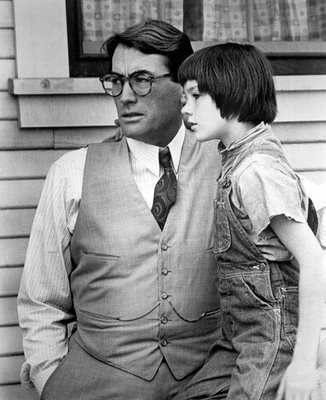 I really loved the book, and so I was looking forward to the movie version of this classic. And I wasn't disappointed. I loved this one, even though it wasn't strictly accurate. I thought of several things that were left out without much effort: for example Aunt Alexandria, who plays a large role in the book, Jem smashing the old lady's flowers and then reading to her, and some smaller details, such as Mr. Underwood covering Atticus when the mob came.
I really loved the book, and so I was looking forward to the movie version of this classic. And I wasn't disappointed. I loved this one, even though it wasn't strictly accurate. I thought of several things that were left out without much effort: for example Aunt Alexandria, who plays a large role in the book, Jem smashing the old lady's flowers and then reading to her, and some smaller details, such as Mr. Underwood covering Atticus when the mob came.However, if you disregard the book and just look at this as its own thing, this movie is wonderful. It's so moving and has a great cast. I particularly liked Atticus, I think. He's calm, cool and collected, as well as being as sharp as a whip. Scout was good too.
My favorite scene was definitely the trial scene. It's so moving, and felt so real. It's also gripping. Even though you know what the verdict is going to be, you can't help hoping that the jury will decide differently, what with all the evidence before them. But no.
There are many movies that leave out large parts of the books, and are less good because of it. This one does leave out a lot of parts, but somehow, it doesn't suffer all that much. It's still a marvelous film, and to me, it seemed to capture the book well. Counter-intuitive, I know, but maybe some of those parts weren't necessary to the movie.
The setting seemed realistic and felt authentic. I would highly recommend this 1961 film to everyone. The film is in black and white; it was a good choice, I think.
5 stars.
Subscribe to:
Comments (Atom)
